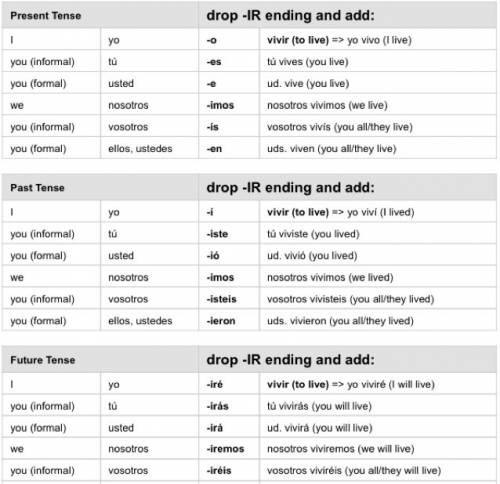
Spanish, 01.07.2019 12:00 belle200163
Ir and -er ending verbs are very similar in their endings when they are conjugated. how do they differ in there endings when they are conjugated?

Answers: 2


Other questions on the subject: Spanish

Spanish, 23.06.2019 02:00, angelakrill14091
According to the audio, what might the weather include today? nubes sol nieve lloviznas lluvias torrenciales relámpagos
Answers: 1

Spanish, 23.06.2019 05:30, bangchan
Read and select the correct option for the blank. an exchange student from mexico brings a typical food from his culture to school. after you ask, what can he say? —hola, amigo fernando. yo como el ceviche. —¿eres de méxico? —sí, soy de méxico y come la tortilla escribo la yerba mate escribe la yerba mate como la tortilla
Answers: 2

Spanish, 24.06.2019 01:30, stgsry4003
Escribe el movimiento artístico que completa la frase. write the artistic movement that completes the sentence. el es un movimiento que se caracterizó por representar la realidad de una manera absurda y fantástica.
Answers: 2
You know the right answer?
Ir and -er ending verbs are very similar in their endings when they are conjugated. how do they diff...
Questions in other subjects:

Mathematics, 02.01.2021 01:10




Mathematics, 02.01.2021 01:10



Mathematics, 02.01.2021 01:10

Mathematics, 02.01.2021 01:10

Health, 02.01.2021 01:10




